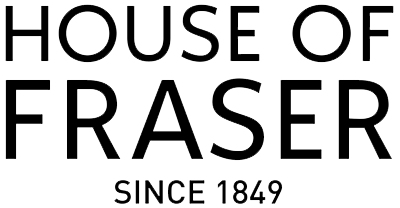Marketplace retail is a growth area for UK business. 95% of British retailers sell products domestically through marketplaces and, last year alone, the number of UK companies using the Amazon Marketplace platform grew by more than 90%.
However, as UKTI figures show, there is still plenty of room for development, as only 1 in 5 firms in the UK currently export, compared with 1 in 5 in France and 1 in 3 in Germany.
To help retailers looking to move into marketplaces, we spoke to Lorna Beament, Marketplace Manager at The Dune Group. Lorna has developed the British fashion brand’s marketplace offering across Amazon, eBay, La Redoute and Zalando, where she is currently responsible for every integration and the ongoing running of partnerships across the UK, USA and in France, Spain and Germany.
Why has Dune put such great investment in your marketplace strategy?
For us, marketplaces bring new eyes to our products and help to build a new audience. For example, a customer searching for black boots will come across one of our products and they may never have bought from Dune before. Afterwards, they may deliberately look for the products or even use the brand website.
Does your brand strategy differ between marketplaces?
Experience and research show that every platform offers a very different customer base. For multiple reasons, the customers Dune attracts from marketplaces are not normally customers of dunelondon.com. We know for example that Amazon and eBay customers are very loyal to those platforms.
Across the different marketplaces, because the product offered and price points are different, the demographic varies. Customers also treat the marketplaces differently. For example, eBay shoppers will make an offer, because they are used to the bidding format. Whereas, on Zalando, shoppers accept that the price is set.
What steps have you put in place to ensure Dune’s brand identity isn’t diluted?
Brand representation is really dependent on the functionality of the marketplace. For example, on Amazon and eBay, brands can set up a store front that closely or exactly mimics the brand website. Whereas on La Redoute and Zalando brands are limited to using headers – but Dune makes the most of this and we focus on campaign imagery to attract the fashion-focused audience. You also need to be aware that when you appear in the marketplace search stream, the branding is limited to product image and name, and this is how the majority of new customers will find you.
How does transacting via a marketplace change your relationship with the customer?
Relationships depend on how the marketplace is perceived. For example, most eBay customers still think of it as a place of auctions, despite the fact that 80% of the product sold are new. Whereas consumer see Zalando – with its history as a footwear retailer and its strong mobile proposition – as a fashion site.
For Dune, the key is customer service and brand continuity – the same team deals with every channel, and the policies (with some small exceptions) are the same. Customers will get the same returns paperwork and confirmation emails.
What would your best practice tips be for brands launching on marketplaces?
Be prepared to try a range of platforms – just because one retailer is successful in a marketplace it doesn’t mean every retailer will be.
For traditional retailers, I think there has been an issue of getting buy-in for new platforms from across the company, particularly in the UK, where there is a perception that Amazon and eBay are low priced distributors. However, in my experience, marketplaces are great for international expansion – they identify where there is a demand, and they allow retailers to test out in that market before launching an independent web presence or retail store.
For the customer, shipping and returns are a key differentiator. Getting the price point right is key; is better for a retailer’s margins to take the time to get it right, than launch with unrealistic expectations.
Ranking and positioning are also vital to success. Retailers must make sure they optimise their listings. But in many ways, it is a matter of testing in an effort to get to the perfect positioning.



















